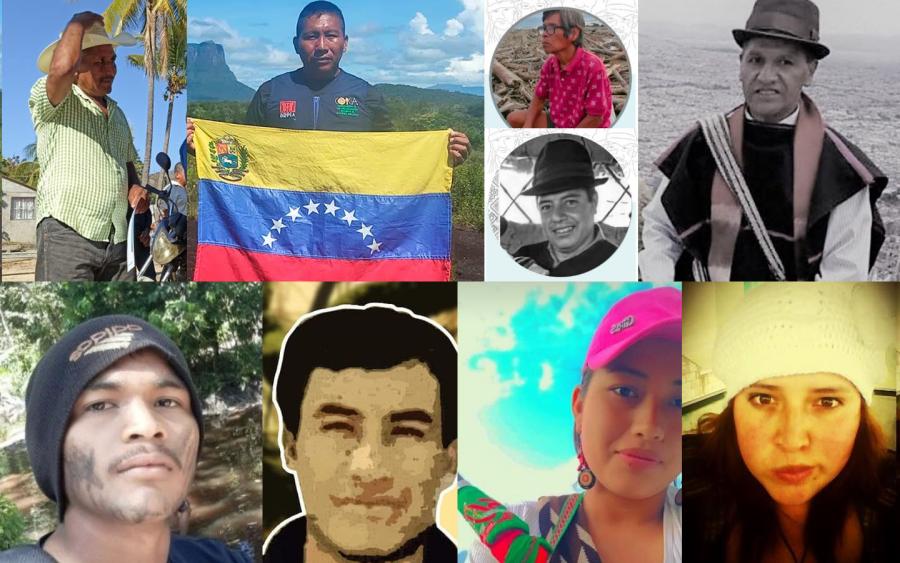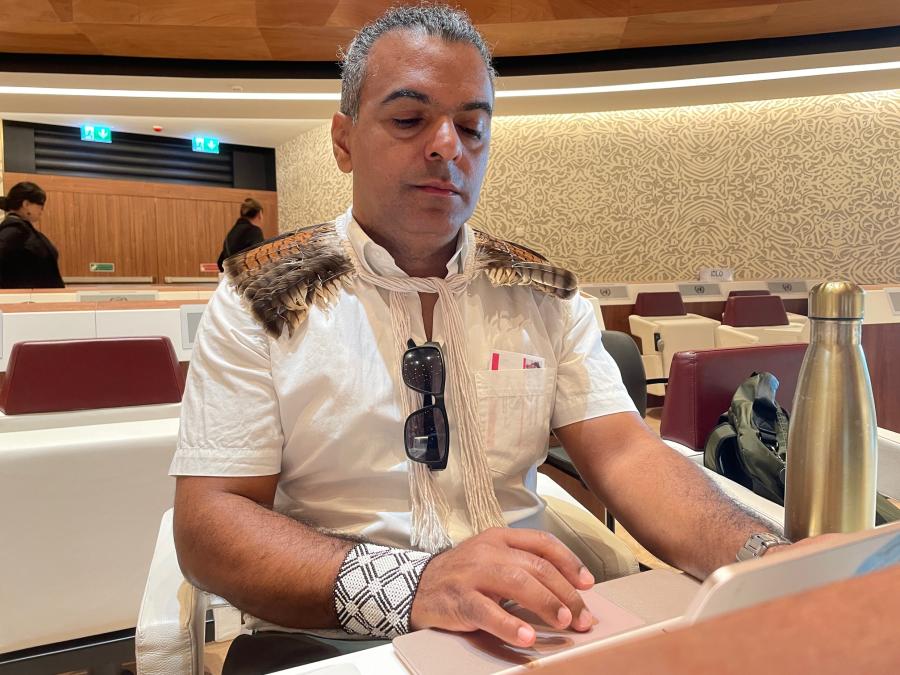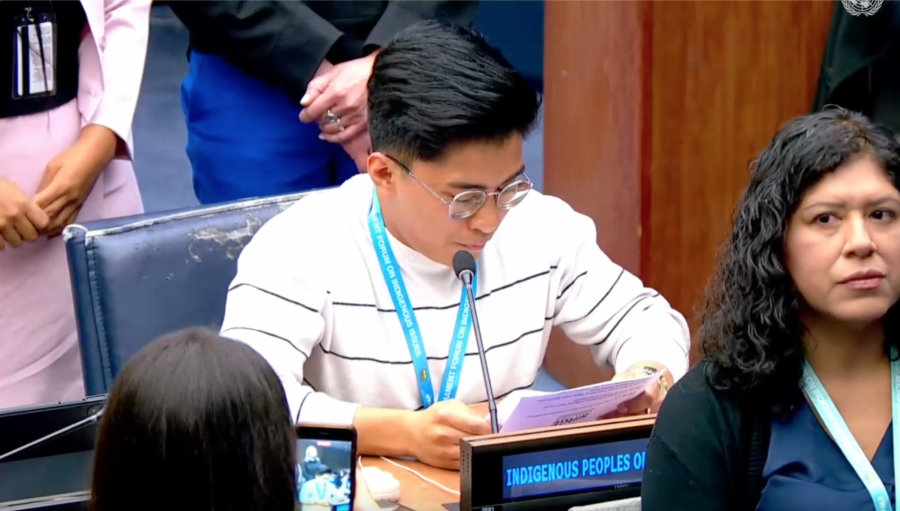Indigenous peoples have always spoken for themselves, although too few of us listened for too many centuries. In the 1980s, as concern arose about sustainable development, the political agendas of governments and development, the political agendas of governments and development agencies began to take note of the relevance of the interests of indigenous peoples. Still, at the close of the Earth Summit in Rio in June, it was painfully evident that not many in policy-making circles even now really hear indigenous voices. Colonial practices - and the polices supporting them - remain entrenched.
In much the same way, indigenous peoples and cultures have become the objects of a trendy interest from our popular culture, even while policy makers continue down their road of business as usual. As the major institutions of our society fail us morally, many who feel lost spiritually look to indigenous belief systems for guidance Although a n appreciation of different ways of living is long overdue, the commercial appropriation of indigenous culture in effect spiritually strip mines other peoples' beliefs, which are ripped from their human and political context.
Finding a sense of who we are and what we stand for as a people is the starting point for dialogue with other cultures and peoples. It is a prerequisite for acting on behalf of human rights and resolving conflicts without resort to force. Cultural Survival is not about preserving diversity so that those lost in post-modern societies can gain a tether to reality. Cultural Survival is about a dialogue among equals, and one goal of this organization is to make difference a source of strength and innovation, not a threat to our common security. CS work in partnership with indigenous peoples, building relationships that encourage a deep appreciation of what other cultures bring to our own.
We can assure indigenous peoples that we are reliable partners only insofar as we can show them that what we do comes from our roots. Toward this end, the Columbus Quincentennary provides one opportunity for non-indigenous peoples to reflect on who we are and what we stand for. We must seize this opportunity by listening to both ourselves and others, finding our voice by grounding ourselves and others, finding our voice by grounding ourselves in our beliefs and traditions.
And we find our voice by acting, by making the Quincentennary an occasion as well for non-indigenous peoples to defend first peoples. Yet effective action is hard to achieve. For at last 100 years, U.S. foreign policy has been rooted in a view of the other that is at best deeply racist. To deepen and expand political discourse in the United States, we must acknowledge the magnitude of the injustices perpetrated in the name of trade and exploration. That means examining a culture of violence that has blinded us to new possibilities and new relationships with other peoples and other societies.
In many ways, this is the critical task in the post-Cold War world. An ability to deal with racial and cultural differences is at the heart of developing multicultural, pluralistic societies. From Los Angeles to Bosnia to Mogadishu, the challenges of living together are painfully clear. Such conflicts erupt when resources - and power over them - are unevenly distributed. As access to resources becomes further constrained, collisions between local communities and indigenous groups on the one hand and governments and economic interests on the other will intensify and define global politics. This is as true in south-central Los Angeles as it is in leaders address the roots of conflict in the 1990s, we face a future of violence and war.
The question then arises, what action can we take? First just as Cultural Survival has advocated fair and equal participation by indigenous people in decisions affecting their lives, it is time to demand this right for ourselves. In 1992, an election year, voters can decide whether to continue the 12-year Reagan-Bush agenda of denial and neglect or push our leaders to come to terms with an interdependent global economy and environment. Local participation in decisions at all levels is a staring point for sustainable national and international development.
Second in 1993, which the United Nations has declared to be the International Year of the World's Indigenous Peoples, the findings of major UN working groups - on minority rights and indigenous rights - may reach the General Assembly as proposed charters. The year and the charters can be entry points for engaging policy makers, elites, and the informed public in the search for guidelines for navigating a future of ethnic and resource conflicts. Cultural Survival will make these initiatives on collective rights a priority, joining them to our continuing advocacy of land rights, our efforts to educate the public in this country, and our work to improve the place of local producer groups in the marketplace.
Article copyright Cultural Survival, Inc.



